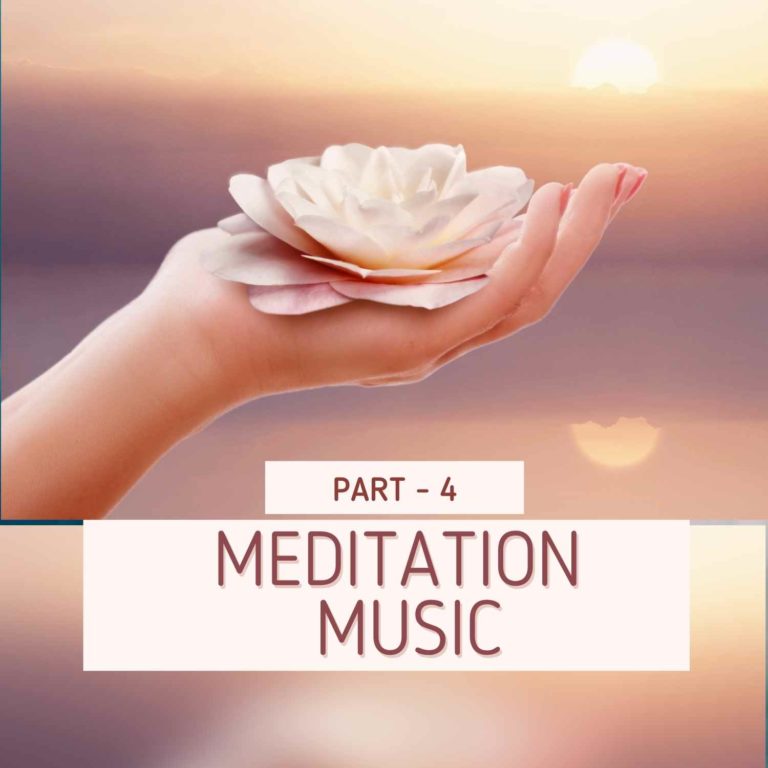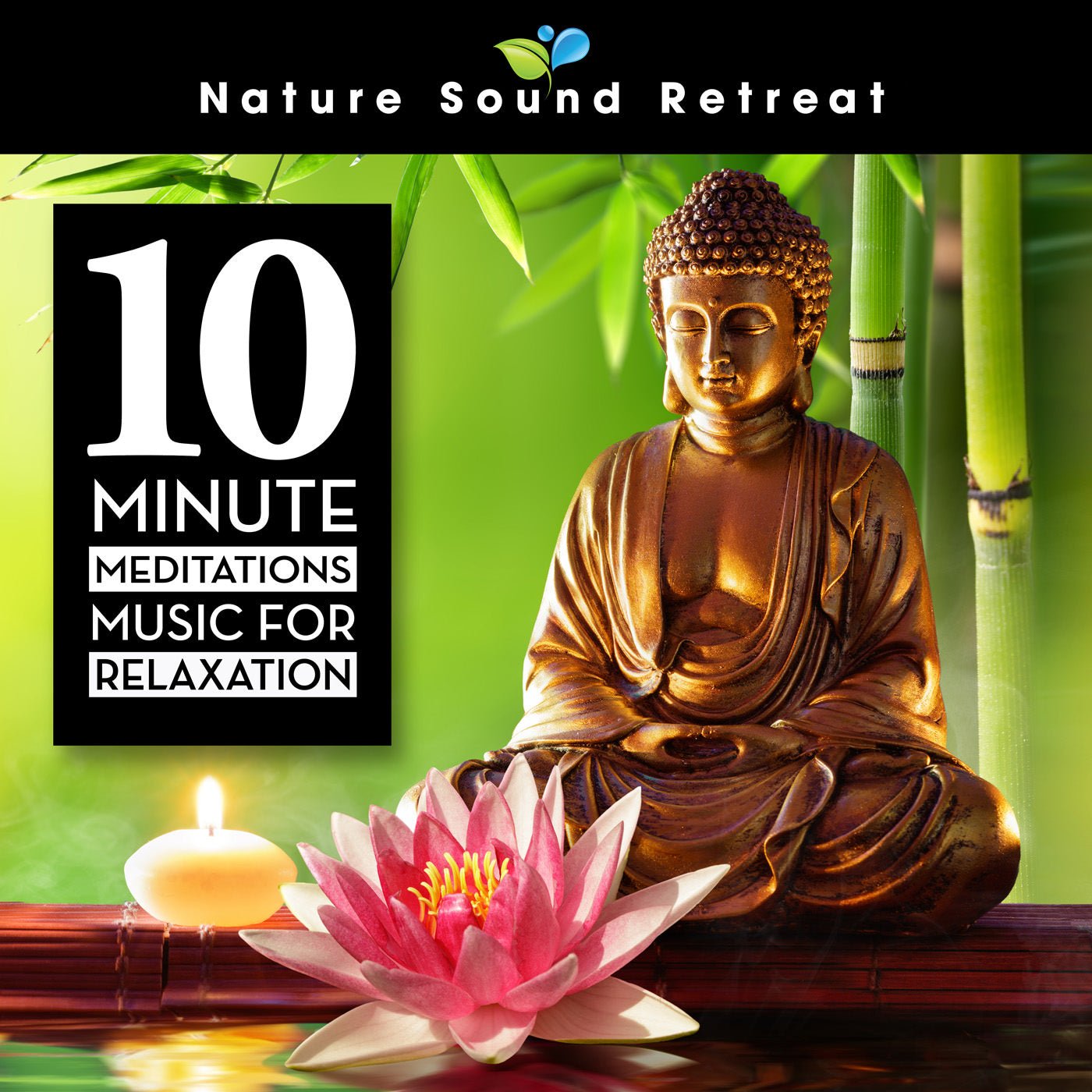Change Your Meditation Experience With the Right Reflection Music Choices
The option of music can greatly influence the meditation experience. Various genres and designs offer different objectives, affecting relaxation and focus. Ambient audios may create harmony, while nature noises can stimulate a feeling of connection. Comprehending how to select the best music is important for enhancing mindfulness methods. What particular elements should one consider when curating a meditation playlist? The solutions might transform exactly how one approaches their meditative journey.
The Science Behind Songs and Meditation
Although numerous individuals appreciate the calming effects of songs during meditation, the underlying science reveals a much deeper link between sound and mental wellness. Research study suggests that songs can significantly affect mind activity, promoting relaxation and minimizing tension. When individuals pay attention to soothing tunes, their bodies generate reduced levels of cortisol, the stress and anxiety hormonal agent, which helps with a state of tranquility important for meditation.Moreover, researches show that particular frequencies and rhythms can enhance emphasis and emotional guideline. The brain replies to acoustic wave, triggering neural paths linked with relaxation and mindfulness. This interaction can cause boosted alpha and theta brainwave task, mentions frequently linked to deeper meditation experiences.Additionally, songs can work as an anchor, assisting practitioners in keeping their emphasis and presence during reflection sessions. Understanding the science behind music and meditation highlights its prospective to improve mental quality and psychological security, making it a beneficial device for practitioners.
Picking the Right Style for Your Practice
Exactly how does one select the most ideal category of songs for meditation technique? The choice of genre substantially influences the total meditation experience. Each style stimulates various emotional responses, influencing leisure and focus. Ambient songs, defined by its soft, spiritual sounds, typically develops a peaceful atmosphere helpful to deep reflection. In a similar way, nature noises, such as flowing water or birdsong, can boost link to the atmosphere and advertise mindfulness.Conversely, classical songs, specifically items with sluggish tempos, can assist in a calming yet structured meditation session. The usage of important songs, empty of lyrics, reduces distractions, permitting professionals to submerse totally in their thoughts. Ultimately, the right genre relies on personal choices and the particular objectives of the reflection practice. Testing with different styles can assist people find what resonates best, promoting an extra enriching meditation experience.
Producing a Personalized Reflection Playlist
Crafting a tailored reflection playlist can improve the reflection experience by lining up the chosen songs with private choices and goals. To produce a reliable playlist, one ought to first determine the preferred mood or intent for every session, whether it's leisure, emphasis, or emotional recovery. Picking tracks that reverberate with these objectives can amplify the effect of the meditation practice.Next, it is helpful to explore various styles, such as ambient, classic, or important, while also thinking about the tempo and rhythm of each item. A balanced mix of new and familiar noises may maintain the experience fresh and interesting. Additionally, the length of the playlist must match the duration of the reflection session, enabling a seamless circulation without disruptions. On a regular basis upgrading the playlist can also help preserve motivation and motivation, ultimately resulting in a much more meeting reflection trip.
The Role of Nature Appears in Enhancing Relaxation
Nature seems play a significant role in enhancing relaxation during meditation, as they can evoke a feeling of calmness and link to the all-natural world. The mild rustling of fallen leaves, the relaxing audio of flowing water, or the distant calls of birds can carry the mind away from day-to-day stressors, promoting a peaceful psychological space. Research study suggests that these organic sounds activate a physical reaction, reducing heart rates and reducing anxiety levels.Incorporating nature seems right into reflection practices can aid secure the meditator's emphasis, helping with a deeper state of mindfulness. As these audios are often acquainted and calming, they produce a backdrop that encourages the release of tension. Whether through recorded tracks or the natural setting, integrating these auditory components can significantly boost the More Bonuses general reflection experience. Eventually, nature sounds work as a powerful tool for those seeking to attain a greater sense of tranquility and relaxation during their technique.

Live Songs and Guided Sessions: An Unique Technique
Integrating live songs into reflection practices introduces a transformative and vibrant component that improves the experience past static nature noises. Live musicians can create a distinct atmosphere, permitting individuals to connect with the present moment through spontaneous tunes and rhythms. This interaction cultivates a deeper psychological feedback, helping people immerse themselves totally in the reflection process.Guided sessions that integrate real-time music usually include a facilitator who blends verbal signs with music accompaniment, improving focus and relaxation. The online facet permits for a liquid experience, adjusting to the group's power and needs in real-time. This adaptability can lead to heightened states of recognition and deeper states of relaxation.Moreover, real-time music can cultivate a feeling of neighborhood amongst individuals, as shared experiences commonly intensify the meditative journey. Ultimately, this special strategy enhances meditation, changing it into a appealing and multi-sensory experience.
Tips for Staying Mindful While Paying Attention to Songs
How can one really boost their mindfulness while paying attention to songs? To grow a mindful experience, individuals must first choose songs that resonates with their reflection objectives, choosing instrumental or relaxing items. Creating a devoted area devoid of distractions is important; this permits the audience to immerse themselves completely in the acoustic experience. Focusing on the sensations elicited by the music-- such as tune, harmony, and rhythm-- can grow mindfulness.Practicing deep breathing while listening encourages individuals to get in touch with the songs on a profound degree. It is also helpful to maintain an open understanding, recognizing thoughts and feelings that occur without judgment. By consciously returning focus to the music whenever the mind wanders, one can reinforce the practice of mindfulness. Eventually, integrating these ideas can change the act of listening into a rich, reflective experience that boosts total well-being.
Regularly Asked Concerns
How Does Meditation Songs Affect My Brain Waves?

Can I Use Popular Songs for Reflection?
Making use of pop music for reflection can vary in efficiency. While some people may locate acquainted melodies soothing, others might be distracted by lyrics, potentially interfering with the reflective state sought throughout practice. Individual choice plays a vital role.

What Is the Suitable Quantity for Meditation Music?
The perfect quantity for reflection songs is generally soft, enabling a mild history presence. This quantity promotes relaxation without frustrating the mind, promoting much deeper emphasis and a peaceful atmosphere conducive to reflection practices.
For how long Should I Listen to Music Throughout Meditation?
The duration for listening to songs go to this site during reflection varies. Commonly, practitioners suggest 10 to half an hour, allowing enough time to focus and relax (The God Frequency). Eventually, specific preferences and reflection objectives influence the suitable listening size
Is It Okay to Sing Along While Practicing meditation?
The concern of singing along during reflection is subjective. Some individuals locate it enhances their practice, while others believe it disrupts emphasis. Inevitably, personal choice and the meditation design determine whether vocal singing is suitable. Numerous people delight in the comforting impacts of music throughout reflection, the underlying science reveals a much deeper connection in between sound and psychological well-being. Ambient music, identified by its soft, ethereal sounds, commonly produces a serene environment helpful to deep meditation. Nature noises, such as flowing water or birdsong, can enhance link to the atmosphere and promote mindfulness.Conversely, classic songs, particularly pieces with slow-moving tempos, can assist in a calming yet structured reflection session. Crafting an individualized reflection playlist can boost the reflection experience by straightening the selected songs with specific choices and goals. Integrating live music into reflection practices introduces a transformative and dynamic component that improves the experience past static nature noises.